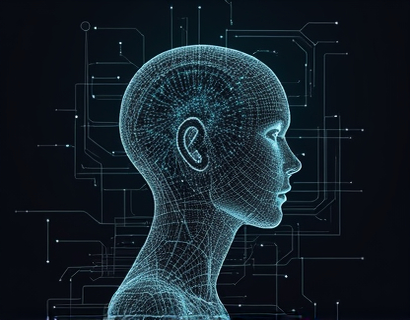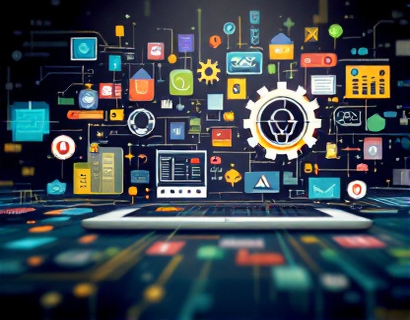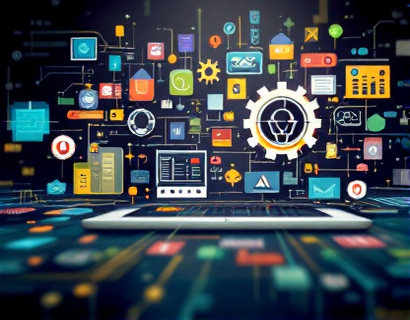Unlocking the Power of AI in Algebra Education: A Secure and Interactive Learning Experience
The integration of Artificial Intelligence (AI) in education has opened new horizons for learners and educators alike, particularly in the field of algebra. Algebra, a fundamental subject in mathematics, can often present challenges to students of all ages. However, with the advent of AI-driven tools, the learning experience has become more secure, interactive, and tailored to individual needs. This article delves into how AI is revolutionizing algebra education, providing a platform that ensures content accuracy, offers specialized insights, and caters to learners of all ages, including a specialized child-friendly version.
The Need for Innovative Algebra Learning Tools
Algebra, with its abstract concepts and problem-solving requirements, demands a deep understanding and practical application. Traditional teaching methods, while effective for some, may not cater to the diverse learning styles and paces of all students. This is where AI-driven educational tools come into play, offering a dynamic and personalized learning experience. These tools leverage advanced algorithms and machine learning to analyze user interactions and adapt the content accordingly, ensuring that each learner receives the support they need to grasp complex algebraic concepts.
AI-Driven Insights for Enhanced Learning
The core of AI-driven algebra education lies in its ability to provide real-time, specialized insights. Unlike static textbooks or even traditional online resources, an AI system can dynamically adjust the difficulty and type of problems presented to a user based on their performance and understanding. This adaptive learning approach not only helps in reinforcing correct methods but also in identifying and addressing misunderstandings promptly. For educators, this means a powerful tool to monitor student progress and tailor their teaching strategies to meet individual needs.
Content Verification and Accuracy
One of the significant advantages of using AI in education is the emphasis on content verification. In algebra, where a single misstep can lead to significant misunderstandings, ensuring the accuracy of information is paramount. AI systems can cross-reference data from multiple reliable sources, apply logical checks, and update content in real-time to reflect the latest mathematical research and educational standards. This commitment to accuracy builds trust in the learning process, making it a reliable resource for both students and educators.
Interactive and Secure Learning Environment
The AI-driven platform for algebra education is designed with security and interactivity at its core. Understanding the importance of a safe online environment, especially for younger learners, this platform implements robust security measures to protect user data and ensure privacy. The interactive chat interface allows for real-time communication between the learner and the AI, simulating a personalized tutoring session. This not only makes learning more engaging but also provides immediate feedback, which is crucial for mastering algebra concepts.
Child-Friendly Version for Young Learners
Recognizing that algebra can be intimidating for young students, the platform offers a child-friendly version that maintains the educational value while presenting content in a more accessible and engaging manner. This version uses simpler language, incorporates visual aids, and includes interactive games and puzzles to make learning algebra fun and less daunting. By starting early with a positive and supportive learning experience, children can develop a strong foundation in algebra, reducing the likelihood of future struggles with the subject.
Personalized Learning Paths
AI's ability to analyze user interactions and performance data allows for the creation of personalized learning paths. Each user, whether a high school student, a college student, or an adult learner, receives a customized curriculum that aligns with their current understanding and learning goals. This personalization extends to the pace of learning, allowing users to spend more time on challenging topics and move swiftly through areas where they excel. Such flexibility ensures that no learner is left behind or bored by the material.
Industry Insights and Applications
Beyond the classroom, understanding algebra is crucial for various industries, including engineering, physics, economics, and computer science. The AI-driven platform provides insights into how algebra is applied in these fields, offering real-world examples and case studies. This not only enriches the learning experience but also helps students see the relevance and importance of algebra in their future careers. Educators can use these insights to create more context-rich lessons, further motivating students to engage with the material.
Collaborative Learning Features
Collaboration is a key component of effective learning, and the AI-driven platform facilitates this through various features. Users can join virtual study groups, participate in discussion forums, and even engage in peer tutoring sessions, all within a secure environment. The AI can monitor these interactions, providing guidance and ensuring that the collaborative experience remains productive and focused. This social aspect of learning not only enhances understanding through discussion but also builds a community of learners who support each other's educational journeys.
Continuous Improvement and Feedback Loops
The AI system continuously learns from user interactions, feedback, and performance data to improve its offerings. This feedback loop ensures that the platform remains up-to-date with the latest educational research and technological advancements. Users can provide direct feedback on the content and features, which the AI uses to refine its algorithms and enhance the learning experience. This commitment to continuous improvement ensures that the platform stays at the forefront of educational technology.
Accessibility and Inclusivity
Inclusivity is a cornerstone of the AI-driven algebra education platform. Recognizing that access to quality education should not be limited by geographical or economic barriers, the platform is designed to be accessible to a wide range of users. It supports multiple languages, offers text-to-speech options for visually impaired users, and is compatible with various devices, including tablets and smartphones. This ensures that learners from diverse backgrounds can benefit from the advanced features and resources provided.
Teacher and Educator Support
Educators play a vital role in algebra education, and the AI platform is designed to support them as well. Teachers can access detailed analytics on student performance, identify common misconceptions, and receive recommendations for targeted interventions. The platform also provides lesson plans and teaching aids that align with the AI-generated content, making it easier for educators to integrate these tools into their curriculum. This symbiotic relationship between AI and educators enhances the overall educational experience.
Future Prospects and Challenges
As AI continues to evolve, the potential for its application in algebra education is vast. Future developments may include more sophisticated natural language processing for more intuitive interactions, integration with virtual and augmented reality for immersive learning experiences, and deeper personalization through advanced machine learning techniques. However, challenges such as ensuring data privacy, maintaining user trust, and addressing the digital divide remain critical areas that need ongoing attention and innovation.
Conclusion
The integration of AI in algebra education represents a significant leap forward in making the learning process more secure, interactive, and effective. By providing specialized insights, ensuring content accuracy, and offering a child-friendly version, this platform empowers learners of all ages to master algebra with confidence. As we continue to explore and refine these technologies, the future of algebra education looks promising, offering a blend of tradition and innovation that caters to the needs of a diverse and ever-evolving student body.









































